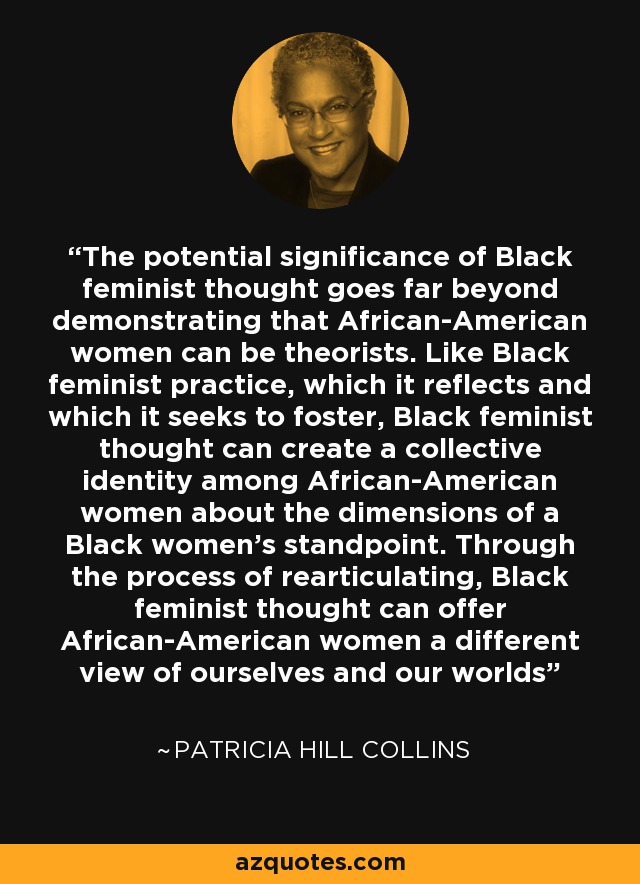
That perspective was shaped by the work of the Canadian sociologist Dorothy Smith.

Although such people are often ignored, their marginalized positions actually make it easier for them to define important research questions and explain social and natural problems. In contrast, people at the bottom of social hierarchies have a unique standpoint that is a better starting point for scholarship. She argued that it is easy for those at the top of social hierarchies to lose sight of real human relations and the true nature of social reality and thus miss critical questions about the social and natural world in their academic pursuits. The American feminist theorist Sandra Harding coined the term standpoint theory to categorize epistemologies that emphasize women’s knowledge. In societies stratified by gender and other categories, such as race and class, one’s social positions shape what one can know. Their work is related to epistemology, the branch of philosophy that examines the nature and origins of knowledge, and stresses that knowledge is always socially situated.


In the 1970s feminist writers inspired by that Marxist insight began to examine how inequalities between men and women influence knowledge production. The theory emerged from the Marxist argument that people from an oppressed class have special access to knowledge that is not available to those from a privileged class. The perspective denies that traditional science is objective and suggests that research and theory have ignored and marginalized women and feminist ways of thinking. Standpoint theory, a feminist theoretical perspective that argues that knowledge stems from social position.



 0 kommentar(er)
0 kommentar(er)
